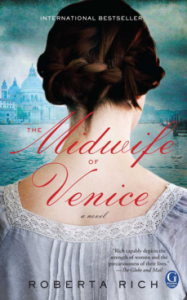
Can she save the mother? Can she save the baby, on whose tiny shoulders the Conte’s legacy rests? And can she also save herself, and Isaac, and their own hopes for a future, without endangering the lives of everyone in the ghetto? Isaac uses his gifts of literacy and a poetic imagination-not to mention long-pent-up desire-to earn his day-to-day survival by penning love letters on behalf of his captor and a paying illiterate public.īack in Venice, Hannah packs her “"birthing spoons”-secret rudimentary forceps she invented to help with difficult births-and sets off with the Conte and his treacherous brother. Isaac soon learns that Joseph is heartsick over a local beauty who won’t give him the time of day. When he won’t give up his faith, he’s traded to the brutish lout Joseph, who is renowned for working his slaves to death. He is auctioned as a slave to the head of the local convent, Sister Assunta, who is bent on converting him to Christianity. Meanwhile, far away in Malta, Isaac is worried about Hannah’s safety, having heard tales of the terrifying plague ravaging Venice. There is nothing Hannah wants more than to see the handsome face of the loving man who married her despite her lack of dowry, and who continues to love her despite her barrenness. Despite the Rabbi’s protests, she knows that this money can release her husband, Isaac, a merchant who was recently taken captive on Malta as a slave. Moreover, she cannot turn down the enormous fee offered by the Conte. Hannah cannot turn away from a labouring woman again. The Rabbi once forced her to withhold care from her shunned sister, Jessica, with terrible consequences. Moreover, as her Rabbi angrily points out, if the mother or child should die, the entire ghetto population will be in peril.īut Hannah’s compassion for another woman’s misery overrides her concern for self-preservation. Not only is it illegal for Jews to render medical treatment to Christians, it's also punishable by torture and death.

When a Christian count appears at Hannah's door in the Jewish ghetto imploring her to attend his labouring wife, who is nearing death, Hannah is forced to make a dangerous decision. Hannah Levi is known throughout sixteenth-century Venice for her skill in midwifery.

It was on such a night that the men came for Hannah. Seeping refuse on the streets renders the pavement slick and the walking treacherous. Through the mist rising from the canal the cries and grunts of foraging pigs echo.

Shapeless matter, perhaps animal, floats to the surface of Rio di San Girolamo and hovers on its greasy waters. The Ponte di Ghetto Nuovo, the bridge that leads to the ghetto, trembles under the weight of sacks of rotting vegetables, rancid fat, and vermin. At midnight, the dogs, cats, and rats rule Venice.


 0 kommentar(er)
0 kommentar(er)
